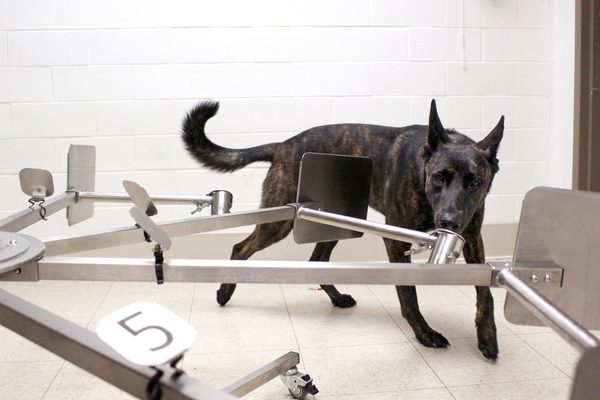A new research published on Sunday has stated that trained dogs can identify COVID with a sniff, even if it is asymptomatic. In other words, dogs can sniff and detect if somebody has COVID with a commendable accuracy rate of over 90 per cent.
The study was carried out by a team of scientists from The London School of Hygiene & Tropical Medicine, in collaboration with Durham University and the group Medical Detection Dogs. Above all, this research comes to back the previous French study stating dogs being able to detect virus with 97% accuracy.
The researchers conducted experiment to find out if dogs could someone who is COVID positive, who emanates a distinctive odor. In order to carry out the study, samples of socks and face masks of 200 Covid-19 cases were collected. The tests were ran with 6 dogs who have been trained to indicate either a presence or absence of the chemical compound.
The group of the six dogs included Labrador, Golden Retriever and Cocker Spaniel breeds ranging in ages from 4-6 years old. Researchers found that the dogs were able to detect the scent of COVID infected within 6-8 weeks of training.
James Logan, the project lead said, “The results are extremely exciting… Dogs could detect Covid-19 with incredible speed and accuracy… even if a person was asymptomatic.”
According to the study, the dogs showed a sensitivity rate of 82%-94% in detecting the virus. Apparently, the chemical analysis of the infected stated a “distinct” odor, which dogs could pick up after training. The researchers are still working to identify the exact chemical behind it.
Although dogs detecting the disease could be a quicker and easier way to identify an infected person, the researchers still say a PCR test is the “gold standard”. Talking about the benefits, Logan added, “The other thing about dogs is that they would serve as a visual deterrent, so if people knew that dogs were going to be screening at the airport, it’s very likely that people would think twice about traveling if they were infected,”
However, even with the promising outcomes, it is still early to know if the trained dogs could be used as a tool in detecting the disease in real.

